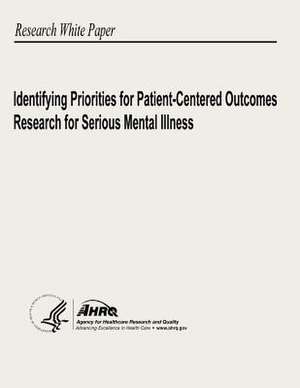Identifying Priorities for Patient-Centered Outcomes Research for Serious Mental Illness
Autor U. S. Department of Heal Human Services, Agency for Healthcare Resea And Qualityen Limba Engleză Paperback
Preț: 89.53 lei
Preț vechi: 94.25 lei
-5% Nou
Puncte Express: 134
Preț estimativ în valută:
17.13€ • 18.32$ • 14.28£
17.13€ • 18.32$ • 14.28£
Carte disponibilă
Livrare economică 28 martie-11 aprilie
Preluare comenzi: 021 569.72.76
Specificații
ISBN-13: 9781489501905
ISBN-10: 1489501908
Pagini: 40
Dimensiuni: 216 x 280 x 2 mm
Greutate: 0.12 kg
Editura: CREATESPACE
ISBN-10: 1489501908
Pagini: 40
Dimensiuni: 216 x 280 x 2 mm
Greutate: 0.12 kg
Editura: CREATESPACE
